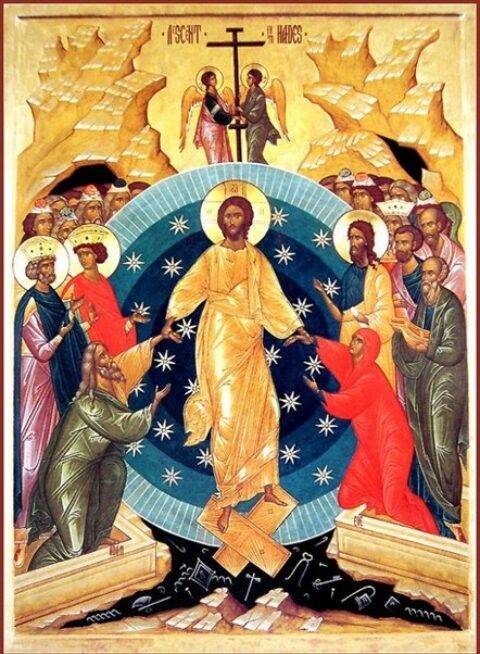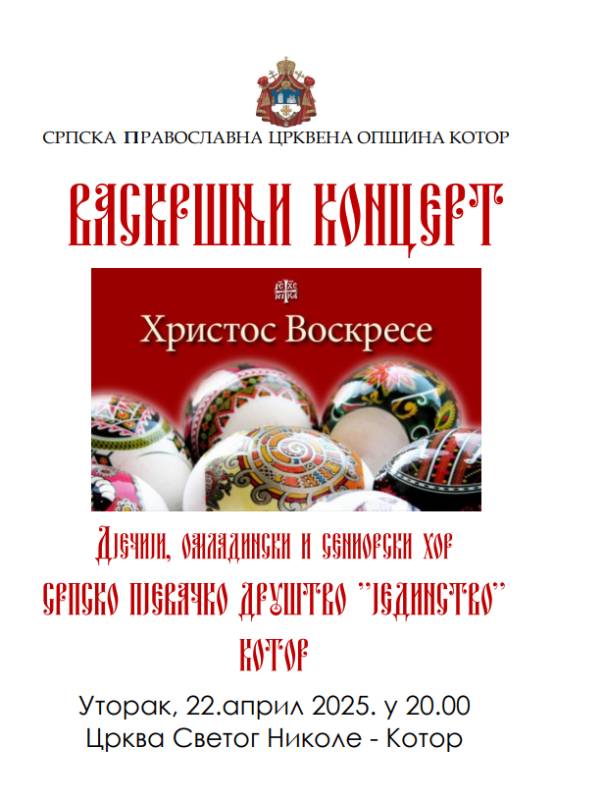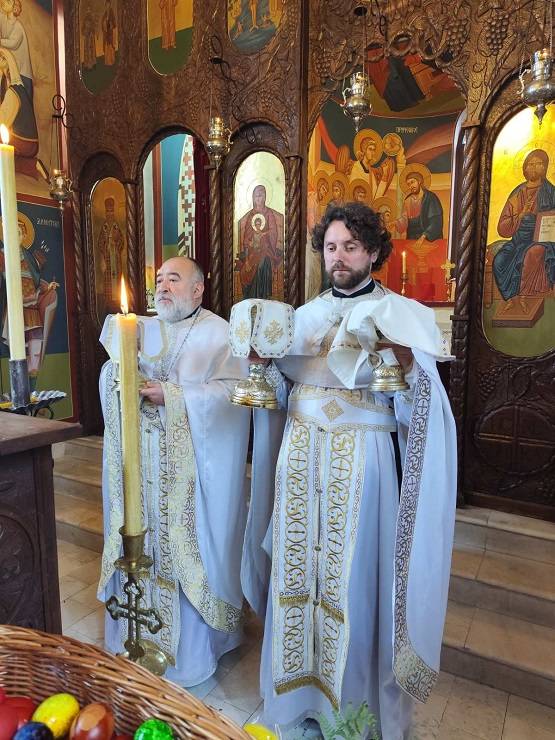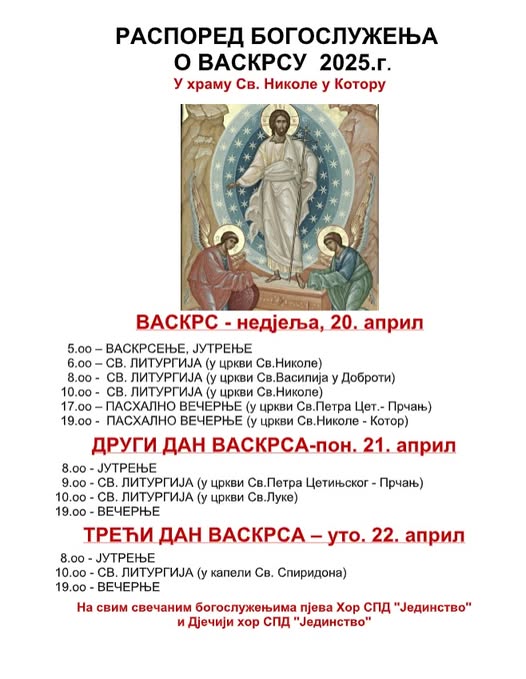
Continuity of repentance
“Repent, for the kingdom of heaven is at hand.” (Matthew 3:2) – with this call begins the Gospel story about the fulfillment of God’s promise to humanity about the coming of the Savior into the world. The call to repentance and active repentance are the foundation of the spiritual life of a Christian.
Through the mysteries of Baptism, Chrismation and Communion, a person is able to receive spiritual gifts and thus approach the high calling of a Christian. These Mysteries are a unique path for every Christian, the beginning of which is Baptism. Through it, the believer’s sins are forgiven and these are the waters from which we enter the Kingdom of God’s grace. Through Chrismation, the Church gives us strength for spiritual growth. This path is crowned, being its goal and its meaning, by the mystery of Communion as the Source of life in Christ. Without participation in the Divine Table, spiritual life is impossible and the Church as the Body of Christ is impossible, according to the words of the Apostle: “Now you are the body of Christ, and members individually.” (1 Cor. 12:27). However, after cleansing in the baptismal font, a person remains very prone to sin and continues to sin in deed, word, and thought. That is why Christ leaves us Repentance as an opportunity to heal our weakness and maintain a living connection with God. It is not for nothing that the Holy Fathers called the sacrament of repentance a second baptism. Through the sacrament of repentance, as the Fathers and Teachers of the Church confirm, by the power of the Holy Spirit, a repentant Christian receives forgiveness of all sins committed after baptism, becoming innocent, as after the waters of baptism. Through the sacrament of repentance, a person again approaches the Kingdom of God, which is lost through sins committed after Baptism. In the Orthodox worldview, the concept of “sin” is of great importance, which is not understood as an abstract concept, but as a fundamental break in the human heart and a true illness of his soul. In the rite of the Sacrament of Penance, we read: “…you came to the hospital, so that you would not leave unhealed” (Trebnik, continuation of the confession). Therefore, the purpose of the Sacrament of Penance is to heal the soul, to return it to its original state, but not to judge, as in the Western Christian tradition. Saint John Chrysostom also speaks about this, considering repentance to be healing and receiving forgiveness of sins, and not punishment. What is the power of repentance, according to Saint John Chrysostom? First, you must be aware of your sins and sincerely confess them. Second, repentance consists of humility. If you confess your sins properly, your soul will humble itself, because conscience, tormenting the soul, makes it humble. After humility, we need constant prayers and sorrow for our sins. After intense prayers, great mercy is necessary, because it makes the healing of repentance especially strong. In the sacrament of repentance, sin is destroyed and, so to speak, ceases to exist in man, but the sinful inclination remains, which is why man constantly needs the sacrament of repentance. Having sinned, man moves away from the truth of God and in the sacrament of repentance he is justified and sanctified by the grace of Christ. But it is worth noting that the sinful acts that we have committed remain in us as a memory, like scars on the body of the soul and continue to influence us. Moreover, we should remember the significance of sinful acts. Some sins easily disappear into oblivion, but for some actions we are responsible, because they have significant consequences and affect our environment. There are sins whose negative consequences we still need to correct for a long time, which is why constant participation in the sacrament of repentance is necessary, especially for old sinners. The fruits of repentance revive the human soul and renew the connection between it and God. Repentance is, in a certain sense, “regret for lost love,” said Bishop Atanasije Jevtić. In Repentance, there is an active bridging of the gap between man and God’s creation. Of course, in the Sacrament of Repentance, the role of the spiritual father is very important, because the shepherd tries to open “the door of repentance, the exit to a new path of life” for the believing sinner (Archimandrite Cyprian Kern). Through the efforts of the spiritual shepherd, it is possible to push the repentant sinner towards future moral transformation and re-education. Incidentally, it should be noted that the Sacrament of Repentance is the spiritual signpost for the priest, which indicates who he himself is – a shepherd or a hired hand. During confession, the priest realizes or actualizes the gift of grace given to him in the sacrament of ordination. The spiritual state of the confessor and his entire behavior must correspond to the height and uniqueness of this gift. In other words, the priest must always remember the words of Christ: “You are the light of the world” (Matthew 5:14).
Repentance in the tradition of the Orthodox Church has always been considered a second baptism. The prophet David cries out: “Wash me thoroughly from my iniquity, and cleanse me from my sin.” (Psalm 51:2). Christ begins his sermon on salvation with a call to repentance (see Matthew 4:17). The Apostle Peter calls the Jewish congregation on the feast of Pentecost to repentance (see Acts 2:38), thus, as it were, connecting his sermon and the sermon of his Divine Teacher with a spiritual thread. Therefore, the importance and necessity of the sacrament of repentance is evident both from the experience of the Church and from the very teaching of the Church about the fall. Priest Antoni Rusakevich
translation: Sl. Aćimović
Source: Friend of God Foundation
PHOTOS
RELATED ARTICLES

Calendar for April 21 Easter Monday
Early on Sunday, before dawn, Mary Magdalene, Mary the mother of James, Salome...

EASTER CONCERT OF THE SPD JEDINSTVO CHOIR
The Easter concert of the children's, youth and senior choirs of the...

EASTER CELEBRATED LITURGICALLY IN THE CHURCH OF ST. VASILIJE OSTROŠKI IN DOBROTA
The Resurrection of Christ was celebrated liturgically today in the Church of...





.png)